3618 videos match your search.
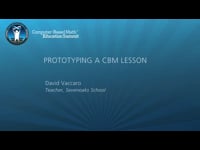 |
David Vaccaro In this talk from The Computer-Based Math™ Education Summit, David Vaccaro shares his experiences in creating computer-based math lesson plans. The presentation includes success stories from two of his students, ... |
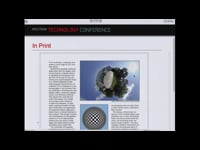 |
Bruce Torrence In this presentation from the Wolfram Technology Conference, Bruce Torrence shares examples of how he's used Mathematica to produce illustrations, demonstrations, and animations for articles in Math Horizons, a magazine ... |
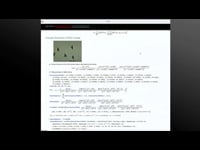 |
Ivo Vyn and Jan Riha Ivo Vyn and Jan Riha share insights on the applications of Mathematica in crystalline optical activity in this presentation from the Wolfram Technology Conference. |
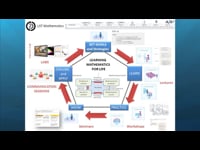 |
Dwayne Philip Dwayne Philip shares his experiences with designing and leading the implementation of what is perhaps England's first and only blended-learning secondary school mathematics curriculum in this talk from The Computer-Based ... |
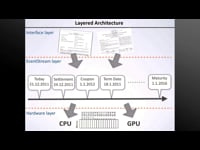 |
Michael Aichinger and Sascha Kratky Michael Aichinger and Sascha Kratky give an overview of the UnRisk-Q Instrument Builder and explain the advantages of using Mathematica to develop powerful financial software solutions in this presentation from ... |
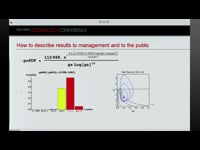 |
James Rock James Rock explains how he's using Bayes's Theorem to fit data to a parametric distribution with Mathematica in this talk from the Wolfram Technology Conference. |
 |
Kjetil Idås In this talk from The Computer-Based Math™ Education Summit, Kjetil Idås gives an overview of the role technology played in raising his students' math scores. |
 |
Nikolay Brodskiy In this Wolfram Technology Conference talk, Nikolay Brodskiy shares his experiences with using Wolfram technologies for a computer-based approach to teaching calculus. |
 |
Filip vrček In this presentation from the Wolfram Technology Conference, Filip vrček walks through classroom examples to show how Mathematica is improving the teaching and learning of mathematics. |
 |
Thomas Mawora In this presentation from The Computer-Based Math™ Education Summit, Thomas Mawora gives an inside look at the success he's having with Kenya's only math camp, which introduces students and teachers to a computer-based approach ... |
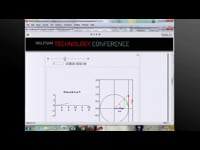 |
Antonio Brito and Abraham Gadalla In this Wolfram Technology Conference talk, Antonio Brito and Abraham Gadalla demonstrate how they use Mathematica's warning error messages to teach and reinforce mathematical concepts. |
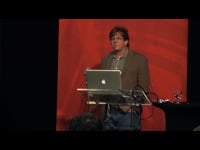 |
Scott Gray In this talk from the Wolfram Technology Conference, Scott Gray, director of Making Math at O'Reilly Media, shares his views on Computer-Based Math™ and gives an overview of the Mathematica-based ... |
 |
Gerald Thomas In this presentation from the Wolfram Technology Conference, Gerald Thomas explores some applications of decision process theory, which uses differential geometry techniques to predict future decisions. |
 |
Alison Clark-Wilson Alison Clark-Wilson presents the details of EdUmatics, a European funded project with the aim to develop a resource for teaching secondary mathematics with technology, during this talk from The Computer-Based ... |
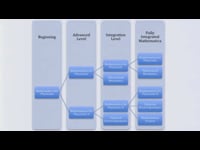 |
Radim Kusak In this Wolfram Technology Conference presentation, Radim Kusak shares his experiences in creating the course, Introduction to Wolfram Mathematica for Teachers, for his colleagues at Charles University in Prague. |
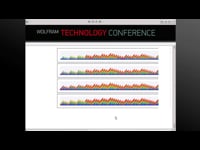 |
Klaus Sutner Klaus Sutner explains his work on iterating binary inverse transducers in this presentation from the Wolfram Technology Conference. |
 |
Michael Belcher In this video from The Computer-Based Math™ Education Summit, Michael Belcher leads a discussion with Jon McLoone on whether Computer-Based Math is winning over the critics. |
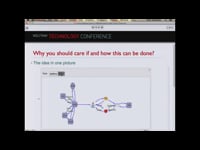 |
Seth Chandler In this Wolfram Technology Conference presentation, Seth Chandler explores the practicalities of using J/Link to establish Mathematica as a communications hub among code developed in Clojure, Scala, and Jython. |
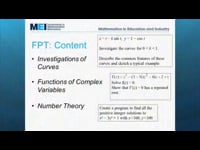 |
Tom Button In this presentation from The Computer-Based Math™ Education Summit, Tom Button discusses his role in developing a new advanced-level mathematics unit, which uses software for teaching, learning, and assessment. |
 |
Josef Karthauser In this talk from The Computer-Based Math™ Education Summit, Josef Karthauser, co-founder of Dr Dots, shares his company's approach to creating educational software that not only teaches kids STEM subjects ... |